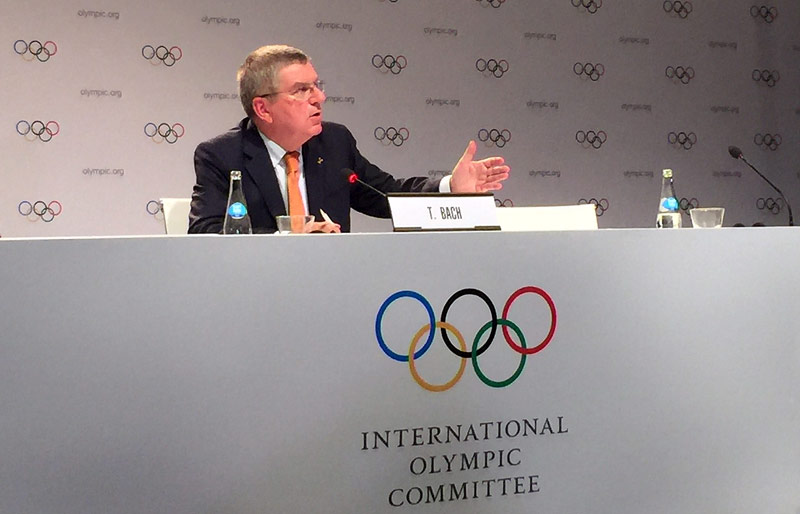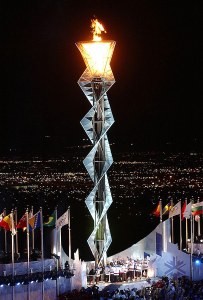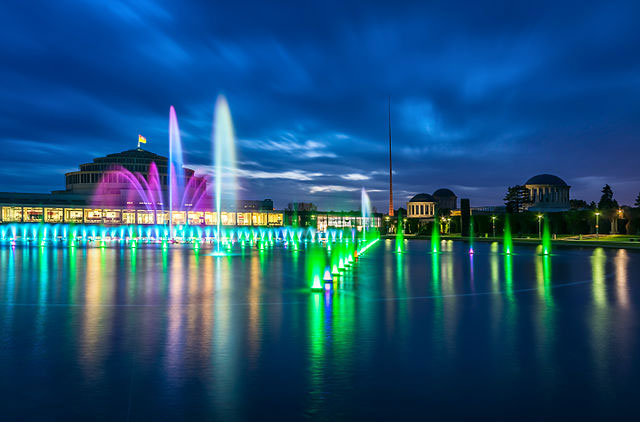Bidweek, Reporting from Toronto, Canada – I have been covering Olympic bids and the International Olympic Committee (IOC) for many, many years – and throughout most of those I have denied that an organization with about 100 voting members and many more stakeholders could predetermine an ‘election’ outcome.
I now know better.

When on Monday officials from Salt Lake City, with the backing of the State Governor, the Mayor and other high-profile officials, suddenly came together at a vulnerable time for the IOC to launch an ‘exploratory committee’ to study a potential 2026 or 2030 Olympic and Paralympic Games bid – I knew what it really meant.
IOC President Thomas Bach is in control of the 2026 Olympic bid process.
About 53.5 percent of voters across the Tyrol region in Austria rejected the Innsbruck 2026 Olympic bid Sunday, seemingly casting a dark shadow over the Olympic world. But unfazed, the IOC said in a statement “We are certain that an excellent host city for the Olympic Winter Games 2026 will emerge from this process.”
Notice “certain.” Not “likely” or “probably” or “we believe” – but “we are certain.” One thing I have learned over the years: President Bach does not like to be wrong.
The Innsbruck failure was clearly anticipated. It was likely just another scene of a script that Bach has written to play out the process of siting the 2026, and potentially the 2030 Winter Games.
The same might be said about prospective but fragile bids from Sion in Switzerland and Stockholm in Sweden – and any other campaigns that might emerge from Europe where eight bids have imploded in the past four years.
He is the IOC President. Prophets predict, Bach laughs.
Let’s step back.
Late on Friday United States Olympic Committee (USOC) Chair Larry Probst said “I put a stake in the ground and said we are interested in hosting the Winter Games,” explaining that 2030 would be the ideal edition but a 2026 bid would put the U.S. at the table should a double-allocation happen, like the Paris-Los Angeles ’24/’28 deal completed last month.
Then on Monday, while reports of the Innsbruck loss were still being filed, Salt Lake City steps forward.
On Tuesday, the IOC distributed a press release extolling it’s new, progressive 2026 bid process. But the detailed package was virtually the same announcement that came out last month, with a couple of extra supporting documents. Perhaps a friendly reminder at a critical moment, if you will.
I’ve also learned, Bach doesn’t do anything accidentally.
There is so much to consider here.
Would the USOC start any serious public discussions about a bid for a Games to occur two years ahead of the LA 2028 Games – keeping contractual obligations in mind – without discussing the possibility with the IOC and those on the Executive Board first? Not likely – the USOC does not bid to lose.
And the IOC has not awarded consecutive Games through an election to a single nation since before World War II, when it was the common process to award both the Summer and Winter Games to the same country in the same year. It’s hard to imagine the USOC would just assume that the IOC would be okay with such an award this time around. And – this is important to note – it was reportedly the USOC’s Probst who came up with the Summer Games double allocation idea.
Would the USOC make that leap forward, in these sensitive bidding times, without a specific city in mind? Probably not.
Would any of this happen without the stakeholders of that city being consulted by the USOC first? Never.
Innsbruck voters have just said no to a 2026 Winter #Olympics. With venues in place, do you think SLC should make another run at the rings?
— Mayor Erin Mendenhall (@slcmayor) October 15, 2017
Of course, that city is Salt Lake City – the only place in America that can organize an LA-esque Winter Games with that sustainable most-venues-built flavor, the one the IOC now craves. Sure, Probst mentioned that Denver and Reno-Tahoe were also interested in bidding and that a domestic process would have to be organized. Okay, go ahead and do that while you continue speaking with Bach about how the 2002 Winter Games host city in Utah is ready to step in immediately.
Another thing I’ve learned, Bach leaves nothing to chance.
I learned this the hard way earlier this year when I wrote that I couldn’t imagine how a double-allocation of the 2024 and 2028 Games could be pulled-off with two cities so tightly focused on only the earlier event. The fierce rhetoric between Paris and Los Angeles representatives running up to the decision in July supported this outlook.
Of course I, along with much of the media, was being duped. It was reported after both cities were awarded their respective Games that backroom negotiations among the IOC and both cities, initiated by the USOC but fueled by Bach, had commenced very early on in the process – even while Budapest remained a third candidate in the race. It was only ever LA considering the 2028 option, and bid Chief Casey Wasserman along with Mayor Eric Garcetti were negotiating hard to solidify a favourable deal. Little did I know at the time, but it had been a foregone conclusion from the moment the proposal left Bach’s lips.
While we (the media) were reporting how devastating Budapest’s withdrawal from the competition must have been to Bach and his Executive Board – it was more likely a welcome outcome that helped lock in the win-win-win scenario the IOC Chief now cherishes.

So what of the 2026 Winter Games bid and a possible double-allocation with 2030?
I asked Bach this question at the Lima IOC Session in September, he replied with a laugh “I am not a prophet, so let us see how it goes.”
Indeed, even better – he is the IOC President. Prophets predict, Bach laughs.
I followed up with a more precise question, “could you create the conditions where you could create the opportunity (for a double-allocation)?”
He answered in his unique, ambiguous style that journalists have become all too familiar with, explaining that it depends on the cities that come forward and if they are open to hosting the subsequent edition.
But there’s this.
We were reminded in Tuesday’s press release about the updated process that the Executive Board will “invite” candidates to bid for the Games at the end of the “dialogue” phase in October 2018. The Executive Board, overseen by Bach, will have the final word on which cities, and how many, will be in the final lap of the race.
The IOC Session in Buenos Aires next year will need to rubber-stamp this decision, but as we have seen in the past – that amounts to a typically unanimous show of hands from the members.
Salt Lake City will be entering the campaign open to both ’26 and ’30, and Calgary officials have already mentioned the potential of a double-allocation to City Council members. Other cities moving forward and participating in discussions with the IOC will undoubtedly be apprised of the possible conditions in advance.
Bach can, and has, created the conditions for a double-allocation.
I’m not a prophet but I can conclude this, the IOC is already working on plans to award the 2026 or 2030 Olympic Winter Games to Salt Lake City. If a European city or Calgary enter the race and survive to the end – that city will be awarded the 2026 edition with the Utah capital then welcoming Olympians in 2030. Bach’s masterplan is, as he did with the Summer Games, to stabilize the hosting of the Winter Games for the next decade and end the downward spiral that the bid process has become.
But if all else fails, the IOC will still declare a victory by awarding the 2026 Games to Salt Lake City – and bid officials along with the USOC and LA 2028 will negotiate a sweet deal to make it all so.
I’m also certain that during the next two years ahead of the bid election set for September 2019 in Milan, I will continue to learn.


